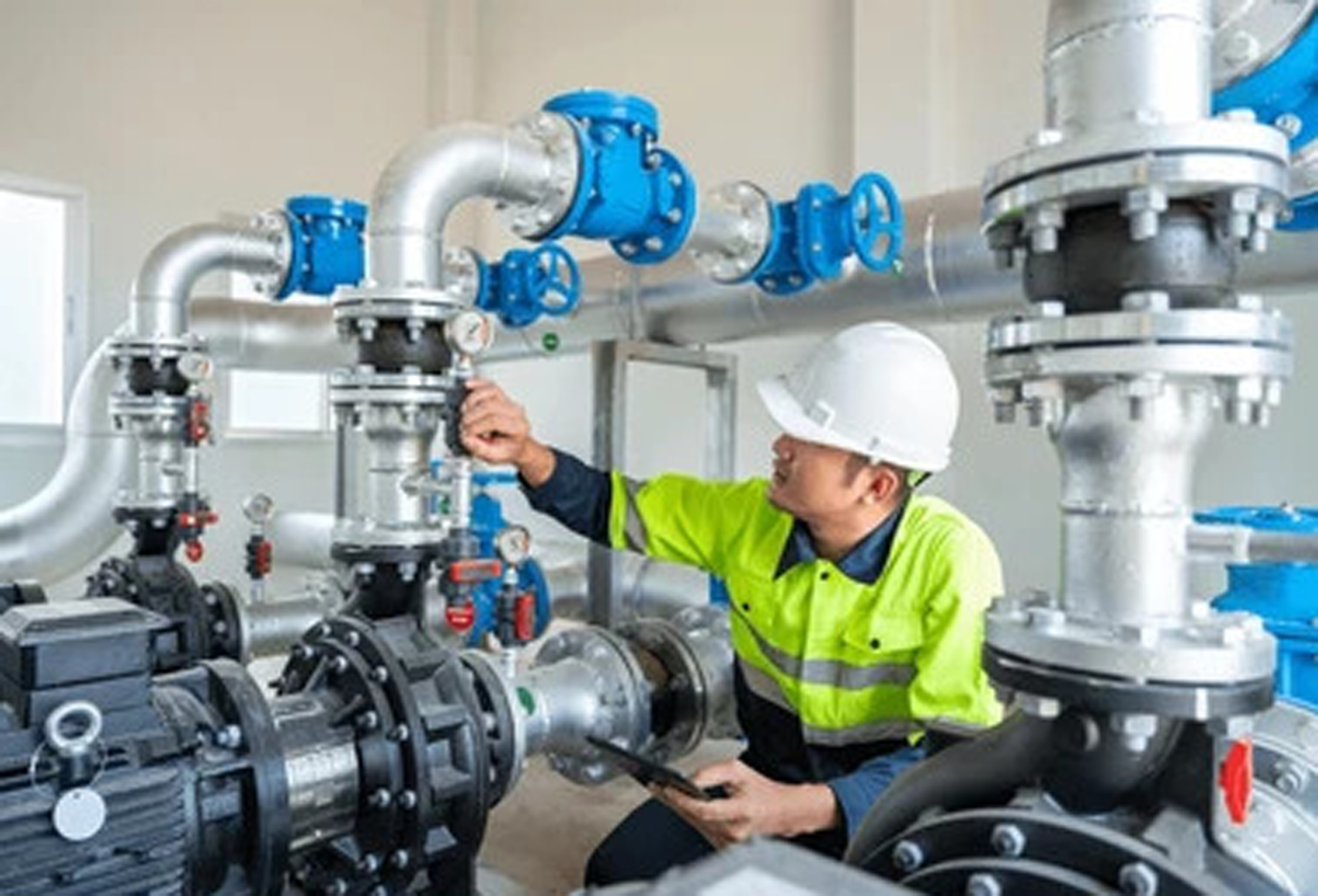The Pump Manufacturing industry in the UK has experienced an average annual growth rate of 4.0% between the years 2017 and 2022. In 2022, the market size increased by 9.6% to reach £2.0bn. These figures indicate that the industry shows no signs of slowing down in the coming years, including 2023 and beyond.
The choice to pursue a career as a pump engineer is a personal one that hinges on an individual’s specific interests, skills, and aspirations. Pump engineers play a crucial role in the installation, upkeep, and troubleshooting of different types of pumps used in sectors like manufacturing, water treatment, and HVAC systems. If you possess a fascination for technology or find yourself drawn to the areas mentioned, it might be worthwhile to explore this profession further.
- Pump engineers specialise in the field of fluid mechanics, which deals with the study of how liquids and gases behave and interact within different systems. This subject can be particularly intriguing for those with an inquisitive nature, as it explores the dynamics of fluids and offers insights into their behaviour.
- Pump engineers frequently face intricate issues associated with fluid flow, pressure, and the optimization of system performance.
- Pumps play a crucial role in multiple industries, such as water and wastewater treatment, oil and gas, manufacturing, agriculture, and other sectors. They have a wide range of applications in diverse fields.
- By focusing on energy efficiency and waste reduction in fluid handling processes, pump engineers play a crucial role in promoting environmentally sustainable solutions. Their expertise in designing and optimising systems allows them to contribute to reducing the environmental impact of these processes.
- Developing expertise as a pump engineer typically necessitates a solid understanding of fundamental engineering concepts.
- Job Opportunities and Career Advancement: Pumps play a vital role in various industrial processes, resulting in a continuous need for pump engineers. By gaining experience and expertise, individuals can progress in their careers and assume positions with greater responsibilities.
If this topic piques your curiosity and you desire further details, we have compiled a comprehensive manual outlining the essential qualifications and steps to becoming a Pump Engineer.
1. Educational Prerequisites
Begin by achieving excellent grades, particularly in subjects such as mathematics, physics, and engineering if they are available. Following GCSEs, you have the option to pursue A-levels in relevant fields, although it is not compulsory.
If you’re interested in pursuing a higher education program in fields such as mechanical engineering, electrical engineering, or a related area, it would be beneficial for you to explore the available options. You have the choice to pursue a Bachelor’s degree (BEng) in mechanical engineering, electrical engineering, or mechatronics. Another route you can consider is enrolling in a Higher National Diploma (HND) or Higher National Certificate (HNC) program specifically focused on mechanical or electrical engineering.
2. Acquire Hands-on Experience
Numerous pump engineers initiate their professional journeys as apprentices, providing them with the opportunity to receive practical training and gain valuable expertise. It is advisable to explore apprenticeship opportunities provided by engineering firms or organisations. Additionally, one can consider pursuing internships or part-time positions in engineering firms or maintenance companies to obtain practical experience. This exposure will prove instrumental in developing one’s skills and establishing significant connections within the industry.
3. Enhance Expertise and Understanding
Enhance your proficiency in both mechanical and electrical engineering by acquiring a range of skills. These skills should include the capacity to interpret technical illustrations, effectively identify and rectify issues, and demonstrate competence with diverse tools and equipment. Additionally, it is crucial to stay well-informed about the latest advancements within the realm of pump engineering. Take advantage of opportunities to join reputable professional associations such as the Institution of Mechanical Engineers (IMechE) or the Institution of Engineering and Technology (IET). By doing so, you can gain access to valuable resources and establish meaningful professional connections.
An air operated diaphragm pump meets most demands with high operational safety and reliability. These self-priming positive displacement pumps have many benefits. The flow rate is infinitely variable via air pressure adjustment.
4. Acquire Appropriate Certifications
While not mandatory, obtaining certifications can significantly boost your expertise and career opportunities as a pump engineer. It is advisable to pursue certifications such as the Pump System Assessment Certificate, available through reputable organisations like the British Pump Manufacturers’ Association (BPMA). This certification validates your proficiency in evaluating and resolving pump-related issues, and it is also crucial to hold relevant health and safety certifications such as NEBOSH or IOSH to ensure a secure working environment in industrial settings.
5. Develop an Impressive Portfolio
As you accumulate knowledge and expertise, it is vital to create a comprehensive portfolio that highlights your accomplishments, projects, and professional certifications. This portfolio will prove to be invaluable while pursuing employment opportunities or bidding for contracts as a pump engineer.
6. Employment Search
It would be advisable to explore opportunities with a company that possesses a dedicated engineering division and a proven track record in recruiting for the pump industry. Such an organisation would be enthusiastic about assisting you in advancing your career.
7. Ongoing Learning and Advancing in Your Profession
Pump technology is constantly progressing, which is why it is essential to remain current with the most recent developments. It is advisable to explore opportunities for additional education or training programs to enhance your expertise and broaden your skill set.
To progress in your professional journey, you have the opportunity to attain the esteemed position of Chartered Engineer (CEng) by partnering with renowned engineering institutions such as IMechE or IET. This prestigious designation serves as evidence of your exceptional skills and commitment to the engineering field.
To pursue a career as a pump engineer in the UK, one must possess commitment, educational qualifications, and hands-on experience. It is imperative to consistently enhance one’s competencies and understanding to thrive in this profession and guarantee the smooth and effective functioning of pump systems.

